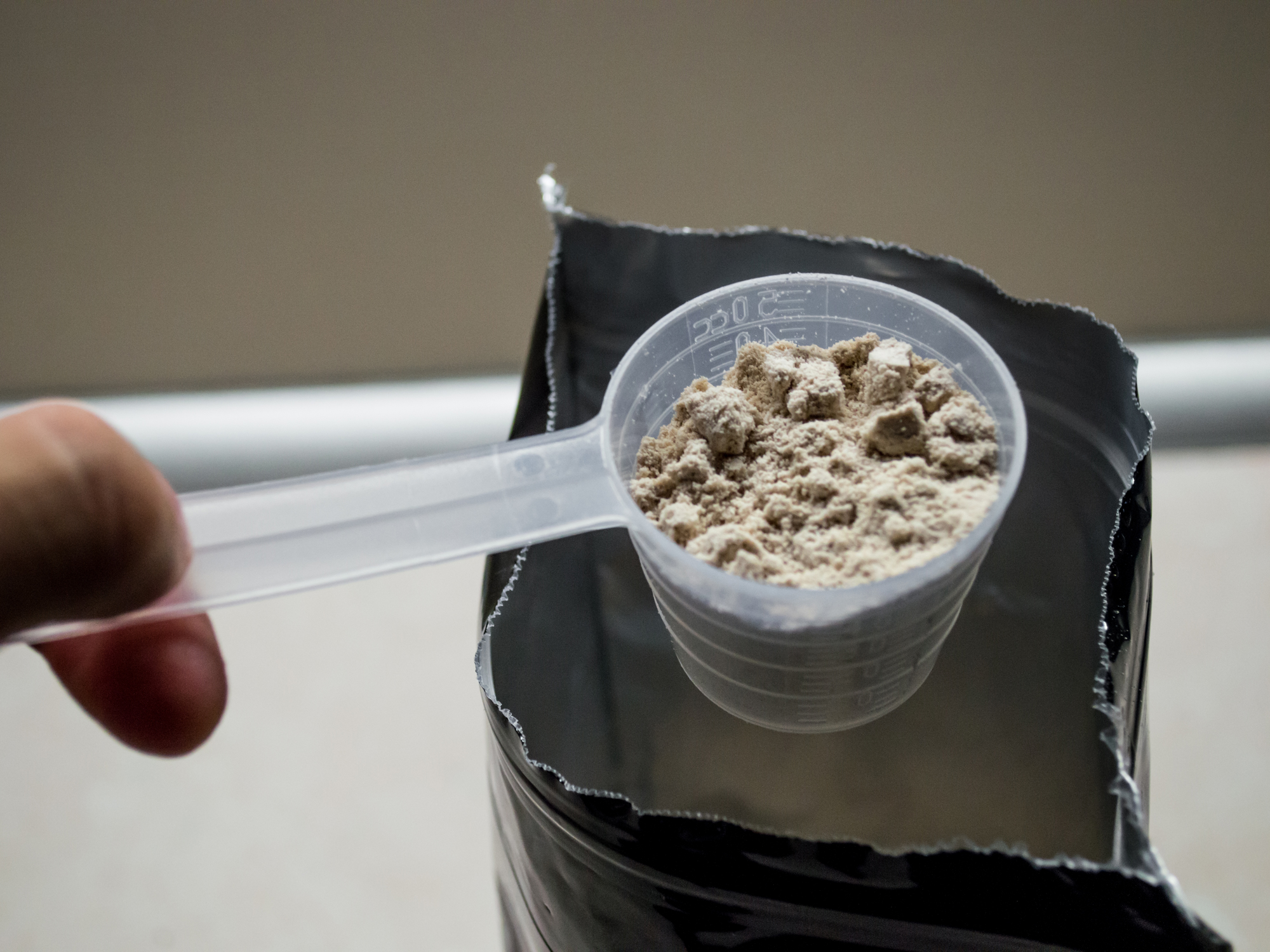Get Easy Health Digest™ in your inbox and don’t miss a thing when you subscribe today. Plus, get the free bonus report, Mother Nature’s Tips, Tricks and Remedies for Cholesterol, Blood Pressure & Blood Sugar as my way of saying welcome to the community!
3 toxic ingredients lurking in your protein powder

Protein powders are so popular nowadays, and it’s easy to see why…
You just toss a scoop into a smoothie, and you’re giving your body the fuel it needs to repair cells, create muscle and perform other critical bodily functions. Talk about convenient.
But when anything gets too convenient, beware. Taking shortcuts often comes with hidden downsides. And in the case of protein powders, here’s the downside:
You don’t know what the heck is actually in that ambiguous powder you’re chugging down every morning. Sure, you can read the label. But labels don’t always tell the whole story.
In fact, a recent study shows that the vast majority of protein powders contain at least three toxic substances that you’ll want to know about before you make your next smoothie…
The unhealthy side of protein powders
The Clean Label Project, a nonprofit dedicated to creating healthier and more transparent product labeling, recently studied 134 of the top selling protein powders and determined that there are toxic substances lurking in many of them.
They tested these powders for unhealthy additions like heavy metals, pesticides and BPA. And here are a few of the toxic ingredients most protein powders contain:
- A whopping 55 percent of the protein powders they tested contained this hormone-disrupting chemical. Even more alarming, one protein powder contained 25 times the regulatory limit of BPA in just one serving!
- The majority of protein powders tested contained the heavy metal lead — 70 percent to be exact.
- This heavy metal was the most common contaminant in protein powders across the board. An astounding 74 percent of protein powders contained it.
Wow! This study paints your “healthy” protein powder habit in a whole new light. But you may be wondering… how do these toxic ingredients find their way into protein powder to begin with?
Researchers say that heavy metals like lead and cadmium seep into the soil from pesticides and mining runoff and then end up in the plants that are used to make protein powders. In the case of BPA, it usually leaches into protein powders from the packaging.
Which protein powders are safest?
If you’re hooked on putting protein powders in your smoothies, yogurt or other healthy snacks, don’t worry. There are some healthier options out there. Based on this study, here are a few guidelines to keep in mind when you purchase your next protein powder:
- Stay away from plant-based protein powders. According to this study, they had the most contaminants. Egg-based protein powders were the cleanest.
- Go non-organic. This advice sounds counterintuitive, but this research shows that certified organic protein powders contain two times as much heavy metals as non-organic protein powders. Organic protein powders did, however, have 40 percent less BPA than non-organic powders. But that can easily be remedied by looking for a non-organic protein powder in BPA-free packaging.
- Check out your favorite brand’s “report card.” The Clean Label Project created “report cards” for the most popular protein powder brands. Check it out before you buy another protein powder.
Remember, even though protein powders are a convenient way to get the protein you need for optimum health, you’re probably better off getting your protein from whole food sources most of the time. About 10 to 35 percent of your daily calorie intake should come from protein. Try to get most of that from fish, eggs, nuts, beans, yogurt, grass-fed meats and other high-quality, whole food protein sources rather than a scoop of powder.
Editor’s note: There are perfectly safe and natural ways to decrease your risk of blood clots including the 25-cent vitamin, the nutrient that acts as a natural blood thinner and the powerful herb that helps clear plaque. To discover these and other secrets of long-lived hearts, click here for Hushed Up Natural Heart Cures and Common Misconceptions of Popular Heart Treatments!
Sources:
- Protein in diet — MedlinePlus. Retrieved March 8, 2018.
- These protein powders are toxic to your health, study says — The Atlanta Journal Constitution. Retrieved March 8, 2018.
- 2018 Protein Powder Study — Clean Label Project. Retrieved March 8, 2018.













